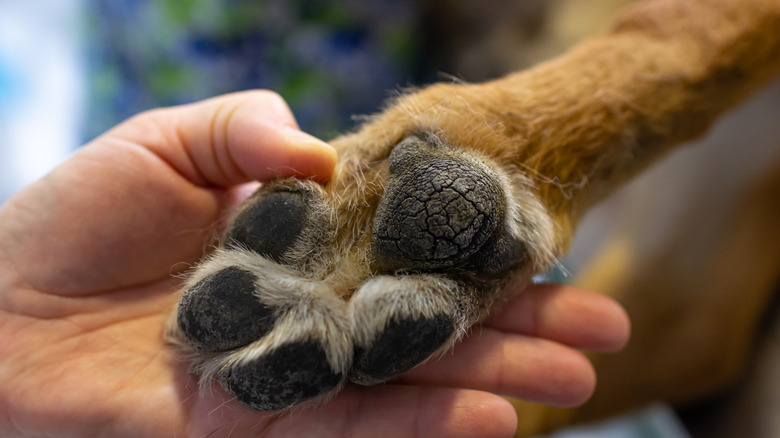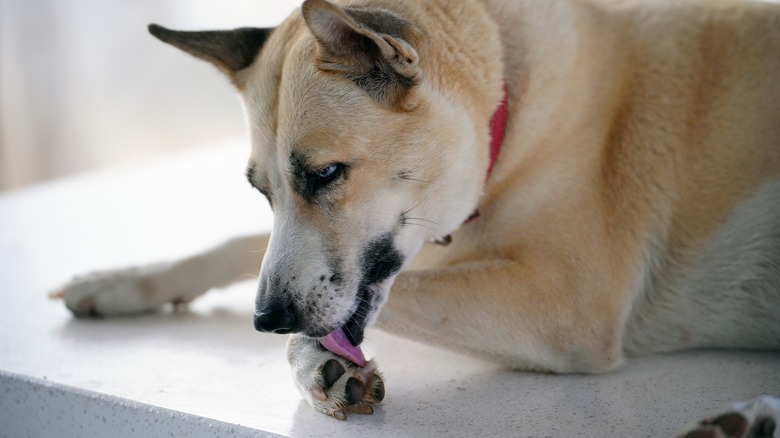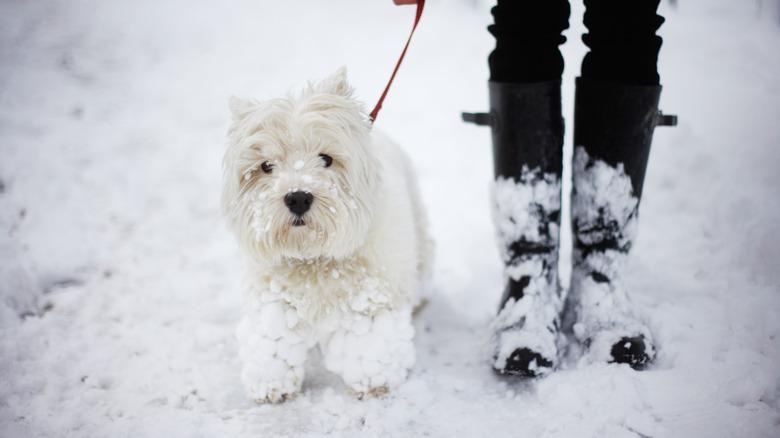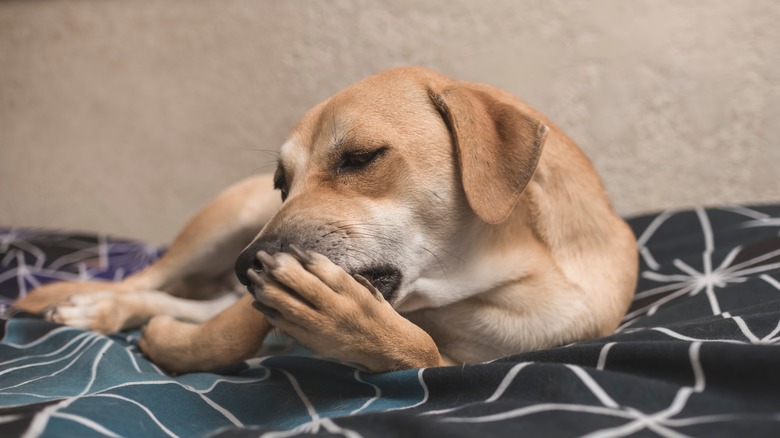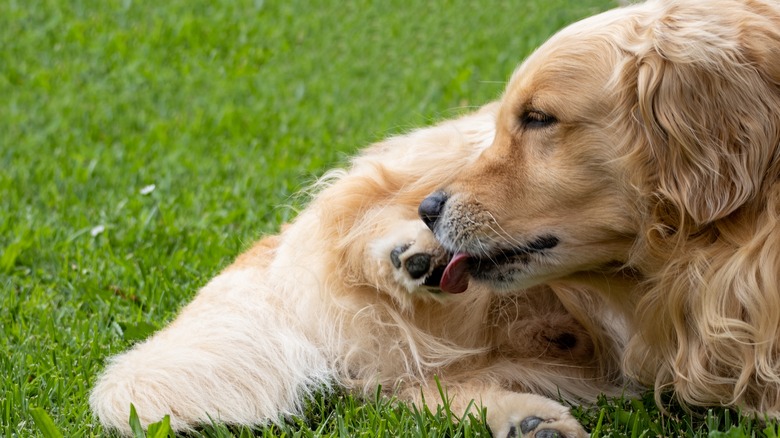What Causes Cracks In Your Dog's Paws? (& How To Fix It)
If you've ever noticed your pup's paws appear to be cracked, there are multiple reasons why this could be. It could just be because their paws are dry due to excessive licking or cold weather, or it could mean there is something bigger going on health-wise that is causing this cracking. Paw pad cracking can be painful, and if you notice your pup is licking their dry paws a lot or is limping, this could mean their paws are bothering them.
Depending on what is causing your dog's paws to crack, there are ways to go around fixing them. Sometimes, applying a little paw balm is all it takes to soothe cracked paws. Other times, a trip to the vet may be needed to treat an underlying condition. Allergies, weather, physical health problems, and nutrient deficiencies are all some of the possible reasons your pooch could be experiencing painful, cracked paws.
Allergies
A common cause of cracked paws in dogs is allergies. When dogs are dealing with allergies, one of the main symptoms they experience is itchiness. When their paws get itchy, they tend to chew and lick them often, which can cause the paws to become dry.
Your dog could be allergic to a number of things, including certain food or environmental factors like pollen. Treating your pup's allergies can help with their symptoms and get them to stop licking their paws and causing them to crack. If you suspect the cause of your pup's dry paws might be due to allergies, talk to your vet about potential treatment plans. In the meantime, you can try using paw or bag balm to soothe the dryness — just be sure they don't lick it off. You can also try a different home remedy, such as coconut oil, which can help soothe cracked paws and is safe for dogs to consume in small amounts (if your pup happens to lick their paws).
Hot and cold weather
The environment and weather can also affect your dog's paws, as weather conditions on both ends of the spectrum can cause dry, cracked paws. Veterinarian Angelica Dimock told Daily Paws that "In summertime, the hot sidewalks can burn off the outer protective layer of the pads. In the wintertime, the cold sidewalks can dry out pads leading to uneven layers and cracks."
To prevent your dog's paws from becoming cracked during the winter months, you are going to want to protect them from elements, such as ice, snow, and salt that can dry out their paws. Dog winter boots are going to be one of the best ways to protect your pup's paws from the harsh winter conditions. You can also put petroleum jelly or paw balm on their paws prior to walking outside in the cold if you want to skip the boots. That being said, dog boots or shoes can also help protect a dog's paws and prevent burns during the summer when walking on hot pavement.
Chemicals and rough terrain
Chemicals on the paws can also cause dryness and cracks. This problem might be more common in the winter, if your pup happens to walk on outdoor surfaces that contain ice melt. Though, chemicals can also affect your dog's paws during the warmer months too, as pesticides in the yard can also cause cracks. To prevent dryness, clean off your pup's paws right after a walk to remove any potential chemicals.
Contact with certain environmental factors can also cause your pup to have paw issues. When your pup walks on rough or rocky ground, their paws can become irritated, and your dog will likely lick their paws to help soothe them. The same can happen if your pup happens to step on something sharp. "Usually the contact irritation turns into cracked paws because of the dogs over-chewing or licking at the paws due to the sensations," Veterinarian Tiffany Margolin told Chewy. Using paw wax on your dog's paws can help protect them from these rough surfaces when they're out on walks or runs.
Internal health issues
Along with external factors potentially playing a part in your dog's cracked paws, there are internal health issues that can also affect a pup's paws. An autoimmune disease is one potential health concern that could cause cracked paws in dogs. If your pup always seems to be licking their paws and is prone to blisters or swelling, they could be dealing with some sort of autoimmune disease.
A hormonal imbalance can also affect a dogs' paws. If your pup is experiencing lesions on their paws and is prone to paw pad infections, it could be caused by a hormonal issue, such as hypothyroidism. Hormonal imbalances tend to affect a dog's skin, and can cause them to lick and scratch more than normal. If your dog's paws are dry and they are showing any signs of a hormonal imbalance, take them to their vet to be tested.
Zinc deficiency
Another potential cause of dry paws is a zinc deficiency. Not enough zinc can have multiple effects on a pup, including problems with their skin and paws. If a dog has a zinc deficiency, their paws will likely become cracked and crusty. Zinc deficiency is rare, as most dog foods contain plenty of it.
Along with cracked paws, a dog deficient in zinc will likely also have scaly or crusty skin. A dog with a zinc deficiency will likely need to change foods to one with a higher zinc content to relieve their symptoms. If you think your dog might be lacking in zinc, take them to the vet to get them tested to confirm, and to help their paws and prevent any other issues from arriving.
